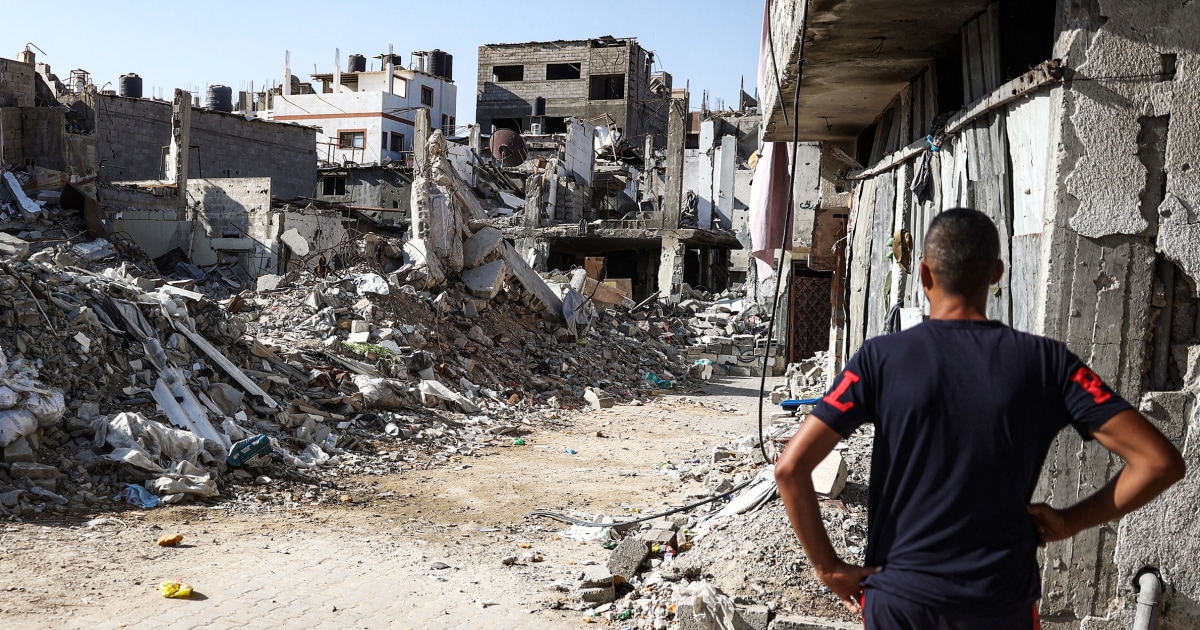A Taste of Home Amidst Turmoil: Mayrig Restaurant’s Role in Providing Comfort to Displaced Families in Lebanon
In the heart of Beirut, where the aroma of traditional Armenian cuisine usually fills the air, the Mayrig restaurant has transformed its operations to address a pressing humanitarian crisis. This week, the restaurant, renowned for its rich culinary heritage, is serving a different purpose: providing nourishment and comfort to those displaced by the ongoing conflict in southern Lebanon.
A Culinary Refuge
As you step into Mayrig, the familiar scent of home-cooked meals envelops you, a stark contrast to the chaos outside. Owner Aline Kamakian, 55, and her dedicated team of about ten staff members are hard at work, ladling generous portions of rice and potato stew with minced meat into plastic containers. This simple yet hearty meal is a lifeline for many, offering not just sustenance but a taste of home during a time of uncertainty.
Kamakian and her team are producing an impressive 3,500 meals daily, contributing significantly to the 50,000 meals being distributed across Lebanon to support the 1.2 million people displaced by the conflict. The restaurant has partnered with the World Central Kitchen charity, which has mobilized to provide food relief in crisis situations worldwide.
The Power of Food
“Food is home, food is security, food is comfort,” Kamakian shared in an interview with NBC News. Her words resonate deeply, especially in a context where many have been uprooted from their lives. By preparing meals that reflect the culinary traditions familiar to those affected, Kamakian and her team are not just feeding bodies; they are nurturing spirits. The act of sharing food that people recognize and cherish offers a semblance of normalcy and comfort in a time of upheaval.
Kamakian emphasizes the importance of this initiative, particularly for those who have been displaced. “It’s very important for people, especially when you are displaced,” she said. In a world where everything feels uncertain, the familiarity of a warm meal can provide a sense of security and belonging.
A Personal Connection to the Crisis
Kamakian’s connection to the ongoing crisis is deeply personal. She has lived through Lebanon’s tumultuous history, including the 2006 war with Israel and the devastating port explosion in 2020 that destroyed her restaurant and left her deaf in one ear. Yet, she asserts that the current situation is the most challenging she has ever faced in her country.
Despite the hardships, Kamakian finds solace in her kitchen. “For now, I found solace in the kitchen,” she reflects, channeling her energy into providing for those in need. Her commitment to serving her community during this crisis is a testament to her resilience and compassion.
The Human Cost of Conflict
The stories of those receiving meals from Mayrig are heart-wrenching. Kamakian describes the displaced individuals as people who once had lives filled with careers, families, and homes. “They are not refugees,” she insists. “Most of them don’t want war. They’re not against anyone. They want just to live in peace and raise their families.”
This perspective highlights the human cost of conflict, reminding us that behind every statistic is a person with dreams and aspirations, now forced to navigate the uncertainties of displacement.
Conclusion: A Community United Through Food
As Mayrig continues to serve meals to those in need, it stands as a beacon of hope and resilience in a time of crisis. Aline Kamakian and her team exemplify the power of community and the profound impact that food can have in healing and providing comfort. In a world often divided by conflict, the act of sharing a meal transcends barriers, fostering a sense of unity and compassion.
In these challenging times, Mayrig is not just a restaurant; it is a sanctuary where the warmth of home-cooked meals offers a glimmer of hope and a reminder that even in the darkest moments, the human spirit can shine brightly through acts of kindness and solidarity.


